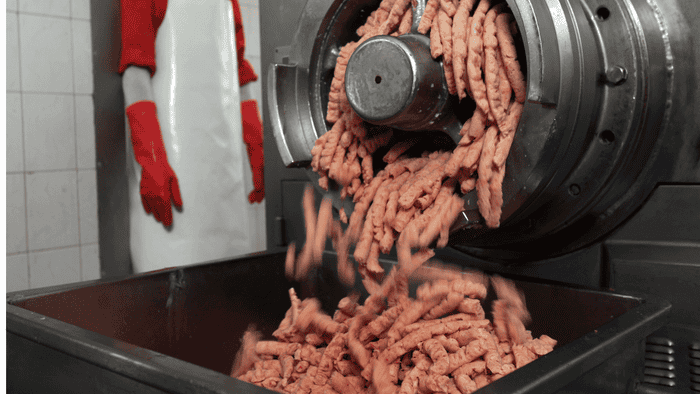
One of the largest pork processing facilities in America is shutting their doors for a yet to be determined amount of time after a large number of their employees contracted COVID-19. It will open back up following direction from officials at a local, state, and federal level. That plant, which is stationed in Sioux Falls, South Dakota, is run by the meat processing company Smithfield Foods, and the CEO of that company claims that this closure will put America's meat supply at risk.
"The closure of this facility, combined with a growing list of other protein plants that have shuttered across our industry, is pushing our country perilously close to the edge in terms of our meat supply," said chief executive Kenneth Sullivan in a statement, according to CNN.
"It is impossible to keep our grocery stores stocked if our plants are not running. These facility closures will also have severe, perhaps disastrous, repercussions for many in the supply chain."
Smithfield says that this particular facility produces up to five percent of the nation's pork, and that it employs 3,700 people.
During a news briefing on Saturday, South Dakota's Governor (Kristi Noem) said that employees at the plant made up more than half of the state's current coronavirus infections. South Dakota has roughly 430 active cases, with employees of the plant making up about 240 of those. That led to her and the mayor of Sioux Falls concluding that Smithfield should close things up for two or more weeks.
Similarly, meat processing facilities in Iowa and Pennsylvania have also closed up shop due to employees sickened by the virus.
In a follow-up, CNN talked to experts who say that consumers don't have to fear supermarket shortages at the moment, so continue to chill. That's due to the fact that there's lot of meats currently in cold storage that could be sold in case of shortages. Companies are also working around their shutdown plants by sending livestock to different, unimpacted, facilities.
The piece did concede that certain products might not be available (or that meat could get pricier), but that an overall meat shortage still remains unlikely. Things could change, however, if more plants close simultaneously, or if the current plants that are shutdown remain that way for a long time. Like everything right now, this stuff is fluid.
"There likely will be a drop in the number of types of products that are on the shelves," said Christine McCracken, a senior analyst of animal protein for Rabobank. "It may be that a deboned product isn't available because they don't have the labor to do that. So boneless chicken breasts might not be an option in the coming weeks."
That's just a hypothetical, but hopefully you get the idea.
